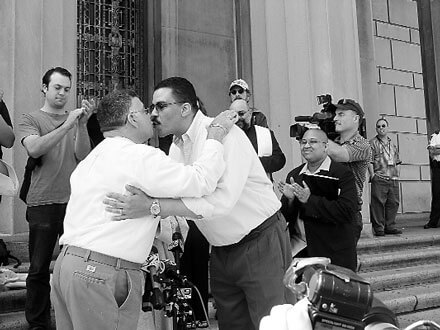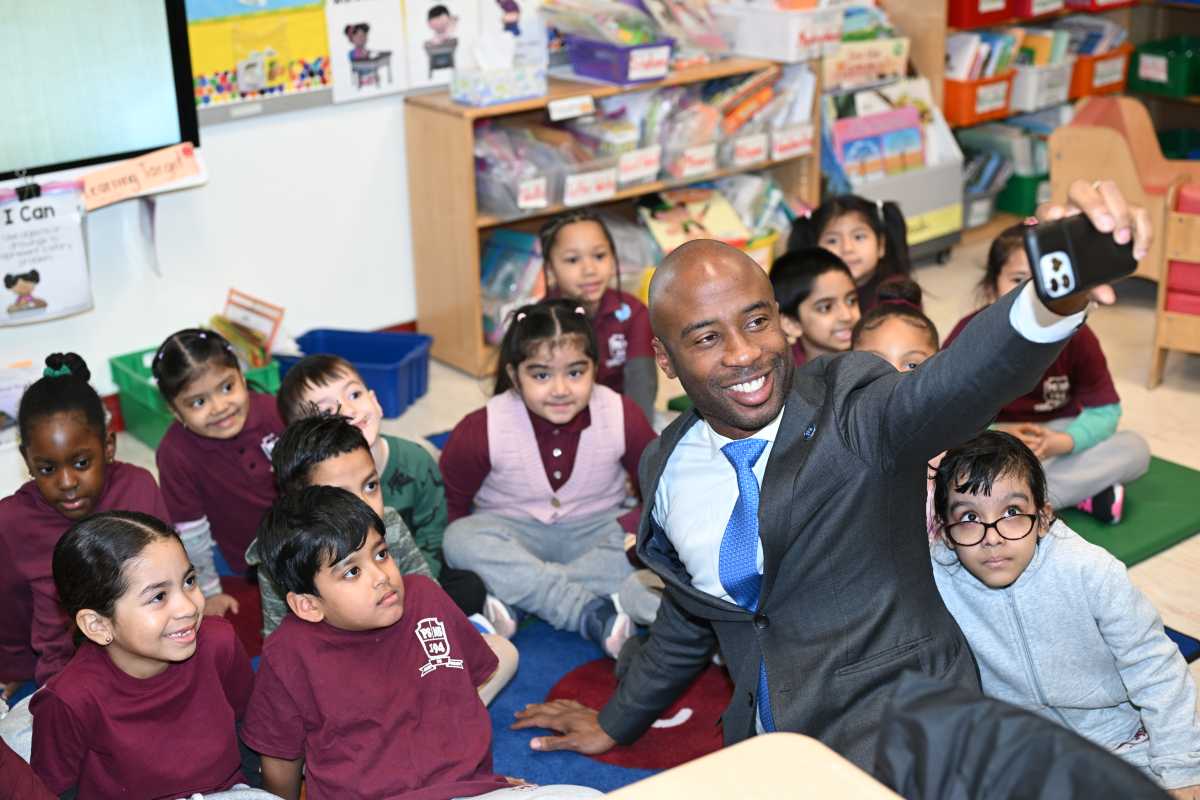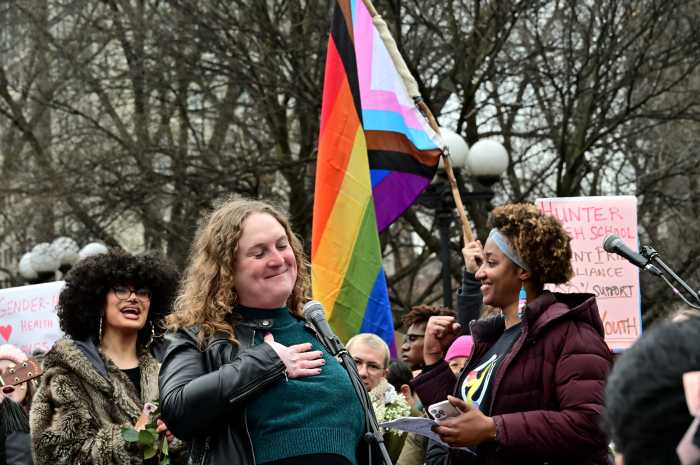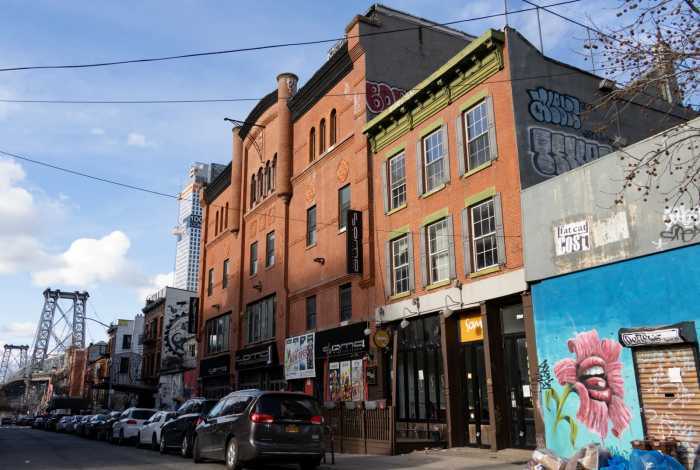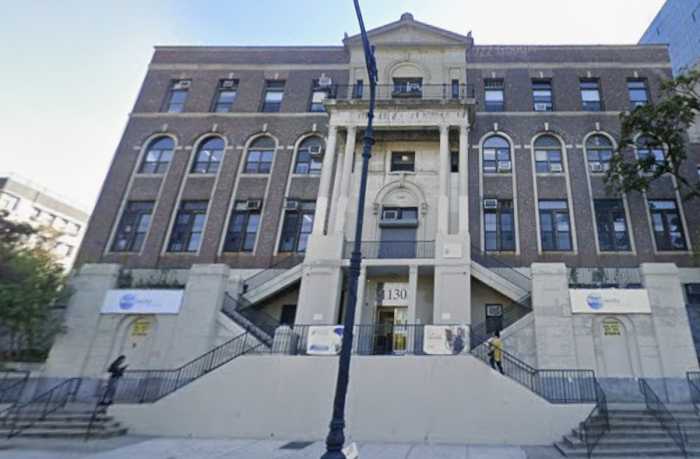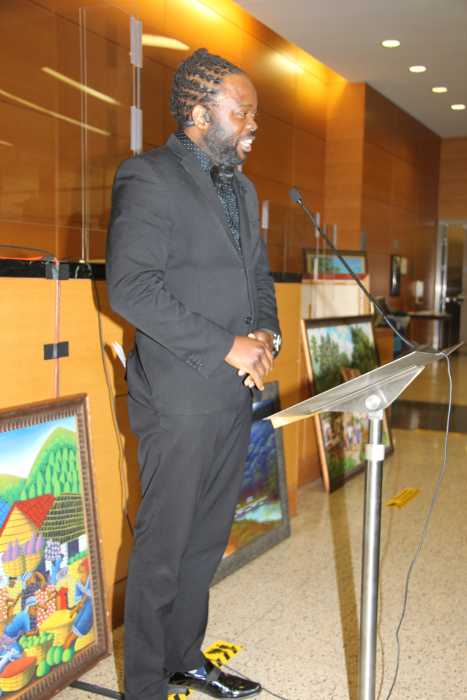Community forum addresses feminist, racial and economic arguments against same-sex marriage
In the ongoing national debate about same-sex marriage, the prevailing argument in the nation’s gay and lesbian community has been in favor of states according full access to civil marriage licenses for same-sex couples.
However, some social and economic justice activists within the queer community have also asserted a different message—that marriage for gays and lesbians does not confer equality at all, but rather, perpetuates an institution rife with economic disparities.
To help articulate this position, the non-profit organization Queers for Economic Justice hosted a panel discussion and community forum called “Love & Marriage: Bush Style” at the Lesbian, Gay, Bisexual and Transgender Community Center on Thursday, April 29.
Moderated by Dean Spade, director of the Sylvia Rivera Law Project, the panel was comprised of Dr. Roddrick A. Colvin, research director of the National Gay and Lesbian Task Force Policy Institute; Dr. Lisa Duggan, assistant professor of history at New York University and author of the book “The Twilight of Equality: Neoliberalism, Cultural Politics and the Attack on Democracy”; Kay Whitlock, a longtime policy expert at the American Friends Service Committee, the national Quaker organization; Glenn Magpantay, co-chair of Gay Asian & Pacific Islander Men of New York; Michael Adams, director of education and public affairs for Lambda Legal, which is working on the cases of several couples currently suing their states for denying them the right to marry; and Ingrid Rivera, a community organizer who serves on the board of Queers for Economic Justice.
Spade opened the discussion by expressing his organization’s concern that most gays and lesbians seeking same-sex marriage rights have stressed “what marriage would be said to solve, not impede.”
Spade said that marriage is an unfair means of “resource allocation” and that the roughly 1,000 federal benefits accorded to married couples should be made available to everyone, regardless of their status, married or not. “I have a deep-seated fear that there will be a federal definition of gender-combination,” Spade said. He asserted that homosexuals and transgendered people should be wary of any measure to gain rights and freedoms stipulated on a written definition of gender. This, he said, threatens to rob people of their own “gender self-determination.”
“As homosexuals, we should know better than to ask the state to regulate our sexuality,” echoed Lisa Duggan. “We should argue for full equality under multiple options.”
Many of the speakers talked about what they saw as a greater need to address disparities in economic benefits between married couples and single people.
“Marriage is a form of privatization of social services,” said Duggan.
Kay Whitlock was critical of rhetoric from the gay and lesbian pro-gay marriage lobby that says, “We’re the last families under attack.”
“No, all families are under attack,” she said, noting that legislation governing public assistance often leaves single mothers, many of them minority women, in economically hazardous situations.
Glenn Magpantay offered his organization’s opinions on same-sex marriage from the perspective of racial equality and legalization of immigration. “We come to the marriage equality discussion from a frustrated position,” he said, noting that the most prevalent images in the media of people involved in the debate as well as the voices most often covered, are not Asians. “Is this a white man, white woman thing? This is not our community.”
Magpantay said that the Asian American community is facing more pressing issues, primarily concerning immigration rights and the Bush administration’s immigrant integration policies post-9/11. Magpantay said that the public’s fixation with gay marriage is a convenient distraction from solving human rights violations of all kinds, both within the U.S. towards immigrants as well as abroad, most notably in the war in Iraq.
All the speakers spoke strongly in favor of simultaneously organizing around multiple issues affecting all members of the queer community. Whitlock used the language of “building bridges, not fences,” while Rod Colvin of the NGLTF stressed his organization’s efforts to “diversify the voices around marriage equality.”
“We don’t look at things in a multi-issue framework,” said Rivera, making clear that she is personally against same-sex marriage because she sees it as an effort to attain privilege, not to attack it.
In his closing remarks, Spade said, “Let’s organize with the 86 million unmarried folks in this country who want to build a more progressive movement that works for rights and benefits for all outside of marriage.”

